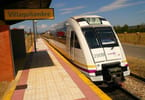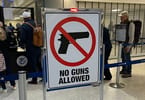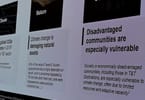While last year saw a major downturn in air traffic, the industry is cautiously optimistic about 2010.
A report describes the present situation as a new competitive landscape for air travel, with more competition between budget airlines and less between the alliance-forming airlines.
Carlson Wagonlit Travel’s latest Travel Management Priorities Report says the recession combined with the A(H1N1) flu pandemic saw great losses in the airline and hotel industries.
But according to Michael Mannix, Vice President of CWT’s Asia Pacific Group, since the last quarter of last year airlines and hotels have seen “somewhat” of a recovery.
“We’re starting to see the early signs of an uptick,” he says.
The number of flights are now increasing.
“They were changing schedules and getting aircraft out of the sky so they wouldn’t be incurring that operating expense,” Mannix says of airlines.
But now those capacity cuts, combined with increased fuel prices and mergers of airlines, have created a new competitive landscape for air travel in 2010, the report says.
Internationally, airlines are bringing in ancillary fees to offset the impact of the global economic crisis and these are becoming part of their formal revenue strategy.
“Airlines are starting to deconstruct their airfares now by separating the core ticket price from things like checked baggage and assigning your own seat,” says Mannix.
Extras such as in-flight wifi access are being rolled out across US Airlines and Southwest Airlines’ fleets this year for customers willing to pay for it. If successful, other airlines globally may follow suit.
The GRC’s effects are still being felt by business class travel. For example, CWT sold 5% less business class tickets in 2009 compared to the previous year.
More people are using low-cost carriers such as Ryanair and EasyJet, with corporations increasingly using them for their employees.
But other factors could lead to ticket prices going up, such as mergers.
For example, the British Airways/Iberia/American Airlines joint venture/alliance is currently under consideration.
But never fear – airlines are also trying to improve the traveller experience, particularly with the use of technology.
There’s expected to be increases in mobile phone usage, paperless boarding passes in SMS form, live satellite television, and the My Airport application for iPhones, which is currently providing users of major airports in Paris with real-time information and updates on their flights as well as conditions on the ground, such as parking, useful services, business centres and checkpoints.
“In an effort to improve the traveller experience, to make it flow a little better, airlines are starting to invest in the pre-trip experience, such as mobile check-in,” says Mannix.
The CWT report also says hotels worldwide suffered more than airlines due to their inability to adjust capacity.
While top-notch hotels tried to entice travellers with slashed prices, three-star hotel rates remained stable and some two-star establishments even increased prices.
But the average hotel stay in 2009 was shortened.
As a negative for customers, it’s likely that this year it’ll be harder to negotiate hotel rates.
The hotel industry is largely fragmented, stresses Mannix.
“Very few corporations have cracked that nut yet, of how to source the right content to how to get it distributed to their user population, to get everyone to book through the approved channels, usually an approved travel agency or a company booking tool, to get them to pay with the preferred credit card, and so it goes.”
To counteract the effects of terrorism, companies are encouraging staff to use “company-approved channels” for organising travel such as secure hotels and airlines, which makes them more traceable in the event of an emergency.
Environmental concerns such as carbon footprint and company emissions were put on the backburner in 2009, with only 13% of survey respondents saying they intended to increase their environmental focus.
A lack of common standards across the industry makes it difficult for travel managers to implement green initiatives.
However, the report shows that companies are setting targets for emission reduction, optimising travel rather than cutting it completely, such as replacing some face-to-face meetings with video conferencing, and opting for “greener” suppliers.
WHAT TO TAKE AWAY FROM THIS ARTICLE:
- “Very few corporations have cracked that nut yet, of how to source the right content to how to get it distributed to their user population, to get everyone to book through the approved channels, usually an approved travel agency or a company booking tool, to get them to pay with the preferred credit card, and so it goes.
- There’s expected to be increases in mobile phone usage, paperless boarding passes in SMS form, live satellite television, and the My Airport application for iPhones, which is currently providing users of major airports in Paris with real-time information and updates on their flights as well as conditions on the ground, such as parking, useful services, business centres and checkpoints.
- “In an effort to improve the traveller experience, to make it flow a little better, airlines are starting to invest in the pre-trip experience, such as mobile check-in,”.






















